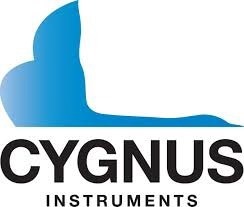The cost of equipment failure in the oil, gas, and chemical industries (including fuel depots, processing plants, and LPG/LNG vessels) can be devastating to workers, shareholders, equipment, and the environment.

Image Credit: Sanit Fuangnakhon/Shutterstock.com
This risk is both tangible and prevalent. The hazardous nature of substances handled daily places significant corrosive stress on equipment, compromising its structural integrity. A long history of equipment failures has led to the strict preventative safety testing and regulations we see today.
While this increased awareness is a positive step, these industries are experiencing rapid growth in demand, fostering a culture where every second and every penny counts. This has made it increasingly difficult to balance safety standards with production targets.
Time and financial pressures often result in equipment being pushed beyond its intended capacity and lifespan. In reality, a proactive approach is far more effective at protecting profits and supporting long-term sustainability.
Implementing a regular safety inspection regime strengthens a company’s position in today’s increasingly sustainability-focused world.
Ultrasonic Testing: A Practical Solution
The simplicity, speed, and accuracy of ultrasonic testing (UT) can significantly ease the pressures of meeting safety and productivity demands. UT helps companies save time, money, and their reputations while delivering peace of mind.
These advantages fall into two key areas:
Maintaining Productivity
Time is a critical factor in the production chain and for equipment inspectors. Fortunately, ultrasonic testing can be carried out on systems that are still operational, meaning inspections don't require production to stop.
For inspectors, large-scale systems often include numerous critical components—welds, pipes, pressure vessels, and storage tanks. When vast areas must be inspected, speed and efficiency are essential.
UT delivers on both fronts. It’s easy to use (even for those without formal NDT qualifications), fully portable, and highly adaptable for measuring a wide variety of materials. It can access tight or awkward spaces and only requires access to one side of the structure.
Cygnus gauges support a wide range of probe sizes, shapes, and angles. Their advanced data-logging capabilities provide instant results that are automatically stored, removing the need for manual data recording.
Guaranteeing Accuracy
Accuracy is crucial when conducting inspections in demanding environments, where time and efficiency are tightly constrained.
Ultrasonic testing is anticipated to experience significant growth in the coming years due to its high sensitivity, efficiency, and exceptional precision in detecting wastage or damage. When applied to thickness measurement, it identifies early signs of corrosion, preventing substantial damage and loss.
To maximize speed and accuracy, Cygnus Instruments has pioneered the Multiple-Echo technique. This has become the industry standard for measuring through coatings and is required by classification societies for ultrasonic thickness testing.
Multiple-Echo provides error-checked, reliable readings of remaining metal thickness, eliminating the need to remove and reapply protective coatings. This not only saves time and money but also avoids further exposing the material to corrosion.
Meeting Stringent Safety Standards
In explosive or volatile environments, durability and safety are non-negotiable. The Cygnus 1 Ex ultrasonic thickness gauge (UTG) features a rugged, shock-proof, and splash-proof (IP67-rated) build—engineered for harsh conditions.
What sets the Cygnus 1 Ex apart is its certification to ATEX, IECEx, and UKEX for use in all hazardous gas zones (0, 1, 2). This makes it the only UTG in the world certified for Zone 0, the most hazardous environment.
Additionally, it is certified for safe use in dust zones (21 and 22) and coal mines, making it suitable for maintenance in high-risk sectors such as oil and gas, mining, and food processing (e.g., flour and sugar facilities).
Thanks to its intrinsically safe design, the Cygnus 1 Ex eliminates the need for a plant shutdown or Hot Work Permit during routine maintenance.
Furthermore, advanced features such as data logging, Live A-scan, and Manual Measurement Modes enhance inspection safety, efficiency, and effectiveness.

This information has been sourced, reviewed and adapted from materials provided by Cygnus Instruments Limited.
For more information on this source, please visit Cygnus Instruments Limited.